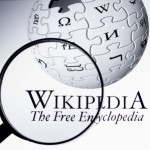 At the back end of last year a fascinating study was published exploring the impact political polarization was having on the workplace. It found that when we know the political leaning of our colleagues, we tend to rely heavily on those with the same political identification as ourselves rather than relying on the skill level of the people in question.
At the back end of last year a fascinating study was published exploring the impact political polarization was having on the workplace. It found that when we know the political leaning of our colleagues, we tend to rely heavily on those with the same political identification as ourselves rather than relying on the skill level of the people in question.
“Our findings have implications for the spread of false news, for political polarisation and for social divisions. If we are aware of a person’s political leanings, for example on social media, we will be more likely to accept their take on a myriad of issues without scrutiny,” the researchers say.
It’s a finding that suggests that the best teams are likely to be those full of people with similar political beliefs. Alas, new research from the University of Chicago suggests that might not actually be the case.
Diverse teams
The researchers examined contributions to over 200,000 Wikipedia pages to explore whether contributions from politically diverse people resulted in higher quality pages than more partisan teams.
“This study doesn’t say we can always get along,” the authors explain. “But if we’re diverse along political lines, it actually means that we bring separate perspectives, and when we’re able to work together, then we’re able to produce a more complete and balanced perspective. If we’re imbalanced, then this study also suggests how bad it can be.”
The researchers began their work by attempting to estimate the political affiliation of some 600,000 or so contributors to the site, with this based upon the number of contributions they had made to either liberal or conservative articles. They then used this to assess the political alignment of each editing community behind over 230,000 individual pages. Pages with a high degree of political diversity in the editing community were considered to be ‘polarized’.
This polarization scale was then compared with Wikipedia’s own six category scale for the quality of each article. It emerged that articles scoring highest for polarization, also tended to score highest for overall quality. What’s more, this trend was not only evident in political articles, but also on various social and scientific topics too.
“While political polarization is now regarded as toxic or brutal, it can work in our favor if it begets diversity of views, balanced engagements and reasoned debates,” the authors say. “Polarization of the editors is positively associated with the quality of their work, even controlling for article length, editing activity, previous editing experience, and other article and talk page attributes.”
Unique perspectives
Pages that attracted diverse contributors tended to have a unique style of discussion on the talk pages for those articles. The analysis found that, contrary to popular belief, diverse teams were able to engage in richer debate with lower levels of toxicity than more homogeneous communities. The authors suggest that in these homogeneous groups, the number of divergent opinions tend to be low, which tends to result in more charged disputes.
Suffice to say, the focus of the study was purely on Wikipedia-based teams, but the researchers believe that their findings are relevant for other forms of work-based teams.
“Wikipedia works because it has a culture where people can appeal to guidelines and recommendations, and they do, they rely on the laws of the community,” they explain. “In a community or media environment without laws, or with reducing norms, it becomes potentially a toxic environment where there are shorter conversations, less collaboration and lower quality.”